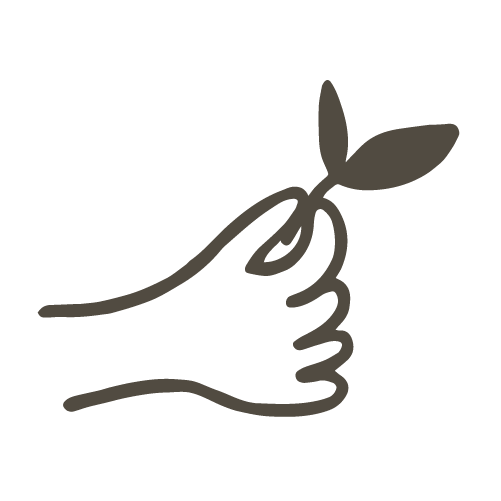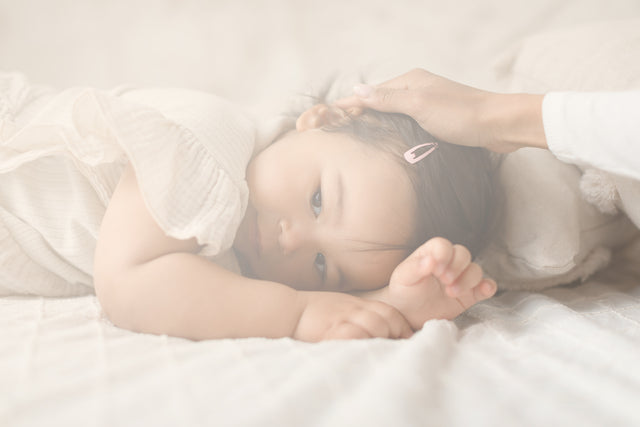Potty Independence: Regressions and Gentle Parenting Tips to Re-Engage Your Toddler
Your little one had it!
They were reliably using the potty and it was going so well.
And then something changed and you're here wondering,
"Why is my potty trained toddler having so many accidents?"
Here's what is magical about the journey you're on: Respectful parenting, positive parenting, gentle parenting, and Montessori-inspired practices, helps us shift our mindset from potty training to potty independence. Knowing that our little ones independence can waver based on their emotions, overwhelm, developmental leaps, interest, or illness or injuries, it's completely normal for them to have times when they are more or less independent when it comes to using the potty.
Walking, they have days they are walking what feels like miles at full speed, and other days they want to be held.
Talking, they have days they confidently go after tough words, and days they stick to simpler words, or just tears and cries.
And toileting is exactly the same. So fear not - your potty independent babe will return in good time, and you can help bring them back to toileting with some creativity and support.
The most common reasons why our potty independent toddlers start to have accidents again:
(Though let's call them misses, k? Language matters, and I promise you'll feel the difference when you refer to that puddle or mud pie as a miss 😉)
- Potty avoidance due to an off-putting experience.
- A change in routines that's changed the frequency or timing of their pees and poops.
- An emerging skill or leap in abilities that's shifted their focus.
- An oncoming sickness. Accidents can be one of the first signs of a viral sickness.
- Pain such as teething or an injury.
- A lack of sleep (for any of the above reasons).
But here's the good news: ALL of these will pass with time.
So what should we do in the face of miss after miss after miss?
Stay consistent.
How do I successfully navigate a potty regression?
Potty regressions can feel intense, like months of work unraveling before you.
But if we could grab a cup of tea and step outside this evening for a little walk and walk, I'd listen to all of your frustrations, disappointments, and exhausted pleas for a break from cleaning soiled clothes, carpets, floors, and toys.
And then I'd ask, do you want comfort, or do you want solutions?
You might at first say comfort, and I'd continue listening, and letting you know how amazing you are doing. How gentle you're being with your little ones tender confidence. How respectful you're being of their natural learning progress and their body's needs. I'd commend you for continuing to guide them with confidence, modelling joy and care in your own self-care practices. I'd tell you how beautiful it all is.
And then we might get to chatting about how the next little while will go if you hope to continue to lead your little one with confidence through this part of their journey.
Just like when we set our little ones up for potty independence, like we share with you in our Diaper Free Potty Independence programs, there are elements that change and those that don't:
What stays consistent?
- Your calm and confident leadership in the process and in your child's ability
- No more diapers arriving/available
- The potty environment you've setup, although you might need to adjust placement, replace or add elements to make it work better for your family.
- Your gentle and compassionate responses to their misses.
- Your support in cleaning up afterwards and willingness to invite them into the process to take ownership over their journey.
What changes?
- Your child's emotions as they move through them
- The games/playful techniques you bring to your parenting moments
- Opportunities you offer for connection and support
- Their skills and independence as they grow and change.
Before we talk about doing anything more...extra...above and beyond ALL of the work you've already put into this, I'm hoping that you feeling is this:
Nothing is wrong.
Nothing is lost.
This is normal.
This is part of every families process.
Their interest and progress will pickup again.
This is a chance for me to learn more about my child and for deeper connection with them.
And every MISS is a chance for my child to build the necessary awareness and feedback to get back to potty independence and reach toileting mastery.
So how do I re-engage my previously potty independent toddler?
Realizing that our little ones are wired to unfold on their own timeline, do so unconsciously, and are working with a limited (yet slowly developing) capacity to concentrate and sustain focus can help us approach them with compassion and curiosity.
We're going to have to
If you've ruled out illness or pain as possible causes for their change in focus, and they are getting enough sleep, we're in a good place to bring out our creativity, good-vibes, and light, playful selves.
Explore these 7 ways we can entice the brains of our little ones to shift back to the potty:
1. Create a Positive and Empowering Environment:
Activity 1: Potty Area Personalization - Involve your child in setting up their potty area. Decorate a little box to hold the prepared single toilet paper sheets that they've torn and stacked ahead of time. Print a couple of potty related prints and put them up with frames, and art print hanger, or with colourful washi tape. Choose a towel they loved to dry their hands after washing. These personal touches will make the potty space feel inviting and enjoyable for them.
2. Stay patient with gentle parenting techniques that encourage independence:
Activity 2: Invite them to set their own timer - Here's the game: When the timer goes everyone freezes, they sit, and we all listen to see if we hear a tinkle or a plop.
A cute kitchen timer set for every 1.5 hours by your little one (with your help), can help fiercely independent little ones feel more ownership over their process and progress. It's also a tool they can take anywhere with them, encouraging consistency despite changes to their care setting (daycare) or outings that are outside of their regular routine.
Tip: If after 1.5 hrs they sit on the potty and nothing happens "That's ok. It's time for a short timer. Let's try again in 10 minutes." Continue setting 10 minute timers until they go. And then do a little dance party because "Yay! We get to set a LONG timer again!"
3. Make use of rhythm and music in your potty routine:
Activity 3: Potty Time Sing-Along - Create a short, catchy song about using the potty, and sing it together each time you head to the bathroom. The familiar tune will prime their body to go go go.
4. Get Creative with Storytelling and Role Play:
Activity 4: Potty Lessons for Stuffies - Invite your little ones favourite toys to learn about using the potty from another toy, inviting your little one to reassure the "teacher toy". Act out potty challenges and overcome them successfully. Act out scenarios that mirror your child's experiences, showing them that using a potty is normal.
5. Get some potty wear or accessories:
Activity 5: Dressing up to use the potty - If your little one loves accessories or special uniforms, this is a great way to help return their focus to the potty. You can create a potty dress up box with items you pick out as "Potty accessories". Thrifted, borrowed, or regular items modified, they can truly be anything from a special headband, bracelet, hat, arm band, bandana, or any other type of item your little one loves to wear. Depending on your little ones temperament and attachment to the items, they might like to wearing it only while sitting on the potty, or perhaps it will become an all day accessory that reminds them to make time for the potty.
6. Encourage Potty Buddies:
Activity 6: Potty Playdate - Organize a playdate with friends or family members who are potty independent. Seeing others going through the same process can normalize it for your little one and bring their focus back to mastering toileting.
7. Make it part of the family culture:
Activity 7: Family Toilet Time - Just like eating meals together, make time for self care together, highlighting your toileting needs and creating a fun and playful atmosphere.
How long does a potty regression last?
If we return to our intentions to use positive, respectful, and gentle parenting practices with a Montessori-inspired approach, we might consider replacing "potty regression" with "potty training pause" or "potty progress pause.". It's just like the "Pause and Regroup" re-frame we use in The Diaper Free Summer program.
By using terms that are more positive and emphasize how normal a part of the learning process is for our children to experience temporary setbacks or pauses in their potty training journey, it allows us to reframe the situation in a way that highlights the ongoing progress and growth your child is making on their path to potty independence.
The short answer is that it could be anywhere from a few days if it's something small, to months for something big.
The long answer will come from determining If your little one is struggling with a fever, through teething, up and past a leap in language, from running to walking, or moving from one home to another, or something else.
But no matter the reason, the real opportunity here is:
"How long will it be before I understand what's going for my child and help them feel supported and empowered through that challenge so that they can return to their potty practice once again."

Article tags: What is this article about?
Potty independence, gentle parenting, positive parenting, Montessori-inspired parenting, toddler toilet training, re-engage toddler in potty training, potty regression, creative potty training, fun potty training activities, empowering potty journey, toddler toileting skills, respectful parenting, potty training tips, potty training course, respectful parenting strategies, positive parenting techniques, Montessori toilet learning, gentle toilet training, and potty training support.

